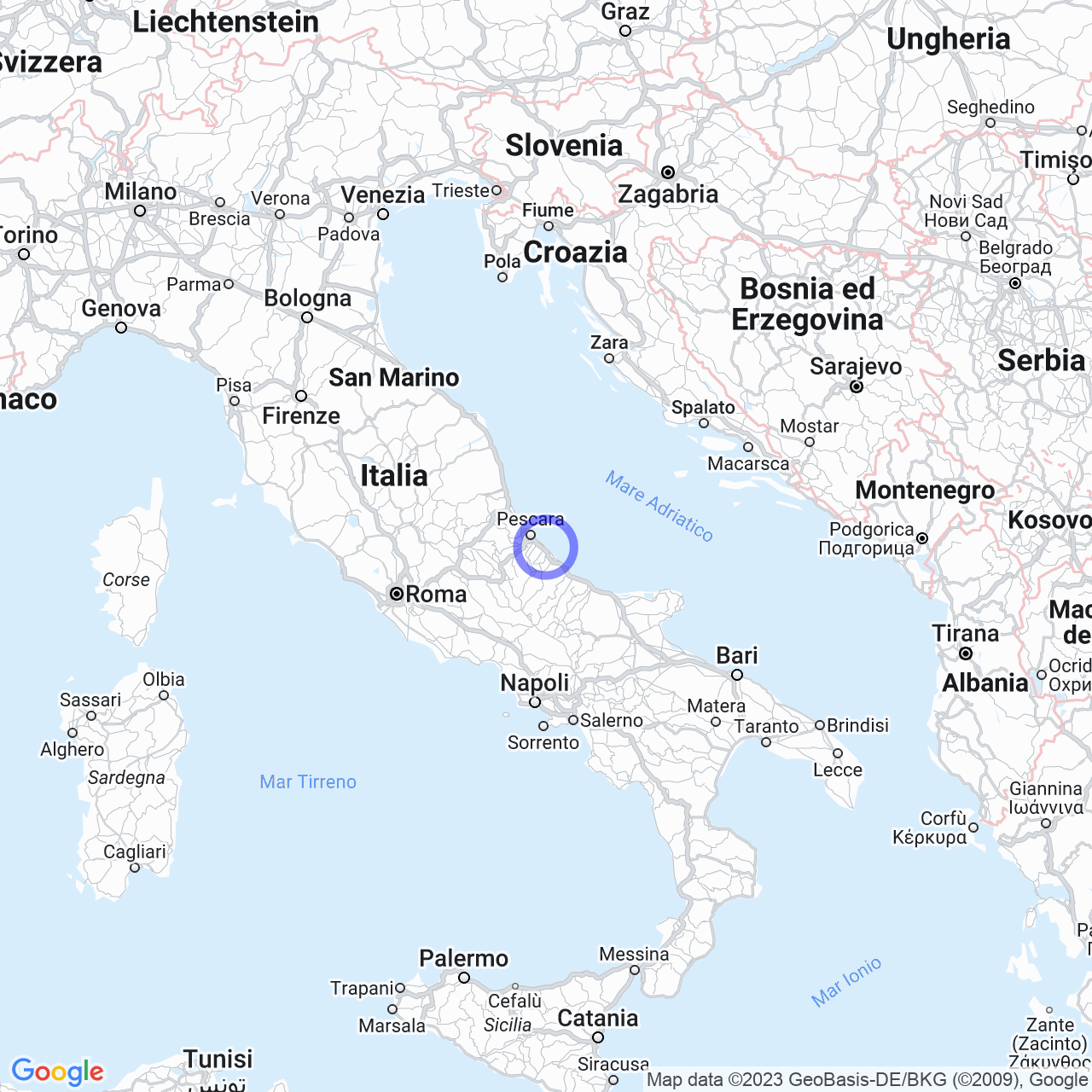Ortona
Ortona: a city with an ancient past
Ortona, a city of about 24,000 inhabitants located on the Adriatic coast of Abruzzo, has an ancient history that is lost in legend. Its name, Ortona a Mare, derives from the fact that the city is located on the sea, but in the Abruzzo dialect it is called Urtónë. The city was inhabited by the Frentani, an Italic people who used it as a commercial port for the sale of local products. Conquered by the Romans in the 1st century BC, Ortona continued to flourish as a commercial center thanks to its strategic location.
Ortona: a city that has seen various dominations
After the fall of the Western Roman Empire, the city was occupied by the Goths, the Byzantines, the Lombards and finally the Normans. In the 11th century, the Normans destroyed the city, but in the Hohenstaufen period, Ortona began to flourish again. In 1258, the city became famous for the pilgrimage to the relics of St. Thomas the Apostle, which were housed in the Cathedral of Ortona.

Ortona: a city dear to Margherita d'Austria and Gabriele D'Annunzio
Ortona then became a cultural center of the 19th century thanks to the works of the writer Gabriele D'Annunzio and the composer Francesco Paolo Tosti. In the 16th century, Margherita d'Austria, widow of Alessandro de 'Medici, built the Farnese Palace, now located in the historic center of the city.
Ortona: the tragic battle of the Second World War
However, the history of Ortona has not always been rosy: during the Second World War, the city was involved in one of the most brutal and tragic battles of the conflict. From December 21 to 28, 1943, the 'Battle of Ortona' saw clashes between German Wehrmacht soldiers and the 1st and 2nd Battalions of the Princess Patricia's Canadian Light Infantry. The historic center of Ortona suffered extreme damage due to the urban guerrilla warfare between the two sides.
Ortona: rebuilt and developed city
Despite these difficult times, today Ortona is a lively and developed city, thanks also to the reconstruction of historic buildings. It is an important maritime port in the Abruzzo region, with its port, and enjoys the presence of numerous natural reserves. Ortona has been awarded multiple times with the Blue Flag for the cleanliness of its beaches and the quality of its waters.
Conclusions
In summary, Ortona is a city that has seen many phases of Italian history, from the first Italic peoples to the Romans, from the Byzantines to the Normans, up to the battle of the Second World War. The city has experienced difficult moments, but today it is a renowned tourist destination and an important center for the economy of the Abruzzo region.
